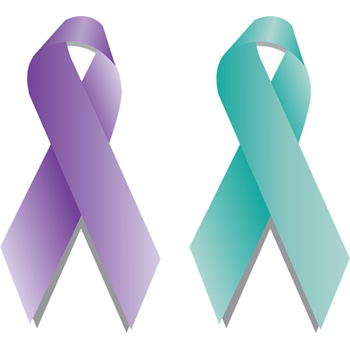January is Cervical Health Awareness Month

Embrace this moment to get screened.
By Jamila Xible, Director, Health Education and Access Programs
According to the American Cancer Society, close to 90% of all Cervical cancer cases are caused by Human Papillomavirus (HPV), a common virus that is transmitted during sex. January is Cervical Health Awareness Month and a perfect moment to take a step back and learn strategies to protect yourself and loved ones from HPV and Cervical cancer.
Receiving the HPV vaccine is the first step. The vaccine is recommended for preteens aged 11 - 12 years old but can be administered as early as age 9 and until age 26. To be most effective, the vaccine should be given prior to exposure.
For women over the age of 21, a Pap smear and HPV test will help determine the risk of Cervical cancer and detect early signs. In the initial stages, Cervical cancer has no symptoms and can only be detected with a Pap or HPV examine. The Pap can detect early precancerous changes in Cervical cells. The HPV test can detect if you carry HPV. Most instances of Cervical cancers start with the HPV virus, gradually develop into pre-cancerous cells and then into cancer. These tests are easy to perform and have no long lasting side effects. If detected early, cervical cancer is one of the easiest cancers to treat. Please discuss individual recommendations with your health care team. The American Cancer Society has a series of helpful prevention guidelines.
Over the decades, the number of Cervical cancer deaths has decreased significantly, mainly due to screening. Yet, it's estimated that over 4,000 women died of Cervical cancer in the U.S. in 2018. According to the Massachusetts Department of Public Health, only 73% of women ages 18 and older have had a Pap smear in the past three years. Of these, Asian women have a gap in screening of ten percentage points compared to white women, with a 64% screening rate. And foreign-born Muslim women face barriers to care and screening. These two groups, as well as African-American women, bear a disproportionate risk for this disease compared to white women.
CHA's Department of Community Health Improvement, through grant support from the Massachusetts Department of Public Health, is working to increase timely Breast and Cervical cancer screening and follow-up care. In addition to its clinical centralized outreach efforts, CHA is now implementing a comprehensive program of community outreach, education and connection to primary care. The goal is to reduce cultural and linguistic barriers to care.
If you or someone you love is 21 years or older and have not had a Pap smear or HPV test within the past three years, please speak with your CHA health care provider.
Disclaimer
This articles provide general information for educational purposes only. The information provided in this article, or through linkages to other sites, is not a substitute for medical or professional care, and you should not use the information in place of a visit, call consultation or the advice of your physician or other healthcare provider.